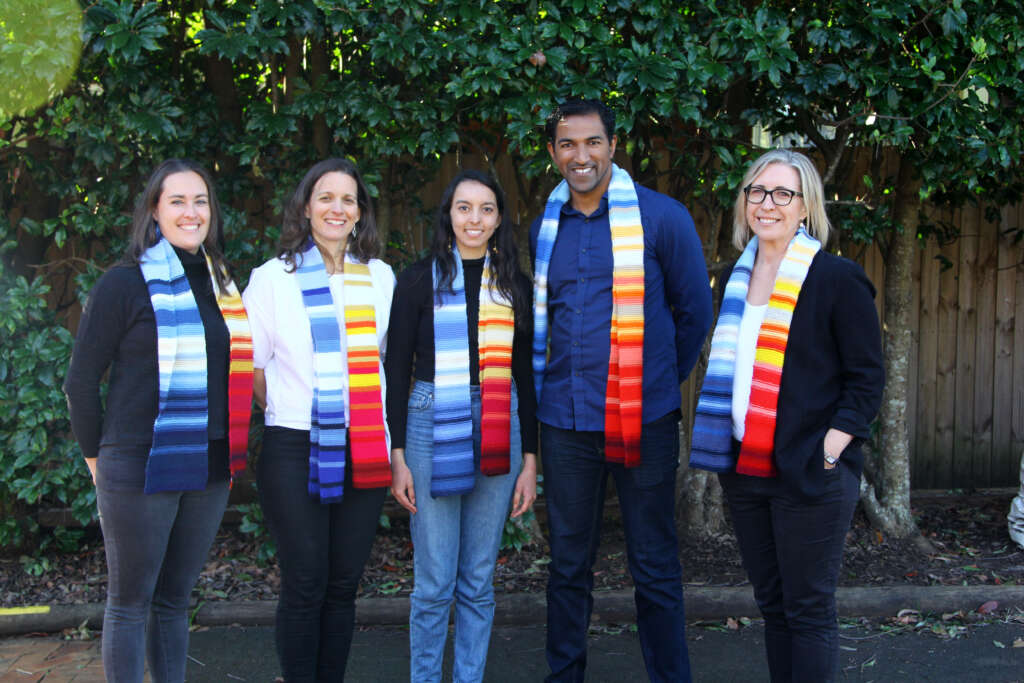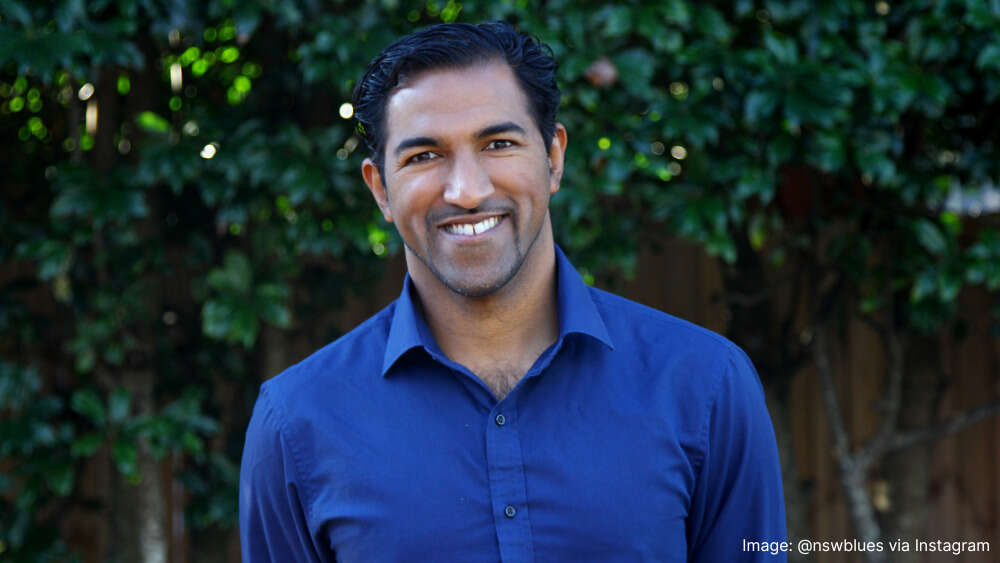Gershon Nimbalker has been named National Director of Common Grace – the Christian group that describes itself as “a movement of people pursuing Jesus and justice.”
Nimbalker is a well-known and respected figure in the Christian social justice space, having spent more than 15 years in advocacy, policy, research, and grassroots community organising. Common Grace Board Chair Kristyn Crossfield said she was thrilled to welcome Nimbalker to the team.
“Gershon’s deep love for Jesus, passion for justice, heart for the Australian church, and breadth of experience working across government and the not-for-profit sector is an ideal combination to serve and grow the Common Grace movement!” Kristyn said.
“We are so thankful to have Gershon join the Common Grace team and are looking forward to seeing how God continues to work through Common Grace as we flourish in this new season together!”
Nimbalker has been involved in Common Grace since it was only an idea and was even asked if he would consider applying for the job in the past. The timing wasn’t right for his young family then, but now, with his family in a different stage, Nimbalker says everything’s “just fitting” as he takes the reins.
“As I was applying for the role, I was thinking it’s been pretty interesting how the succession of different things I’ve done throughout my career very neatly led me to this specific role,” Nimbalker told Eternity.
Nimbalker will be the organisation’s fourth National Director since its launch in 2014. The role was previously led by Jarrod McKenna (2014-2015), Scott Sanders (2016-2019), and Brooke Prentis (2019-2022). The incoming National Director has a lot of respect for what the organisation has already achieved, noting the financial stability that former National Director Scott Sanders built “out of pure necessity.” He also points to Safer, a resource Common Grace released in 2017 to equip churches responding to Domestic and Family Violence, saying it is still “one of the best domestic and family violence resources the church or community has.”
Under the direction of Aboriginal Christian leader Brooke Prentis, Aboriginal and Torres Strait Islander justice work has been especially prominent in recent years.
“I was very lucky to learn a lot from Brooke,” Nimbalker says. “I got to work with her quite a bit before she left Common Grace, and it was a humbling experience. It left me with a passion to make sure we keep progressing.”
Plans for Common Grace
“I think what all those in the Christian justice space have really been amazed by with Common Grace is how well they’ve done that formation work – helping us to go deeper into our theology, understand Jesus, and understand the implications that has for justice,” he says.
“I’m hoping to continue that amazing legacy of the leaders that have come before but also to extend that out. To think more closely about how we transform that into impact. How do we build a movement of people that are inspired, equipped, and mobilised for justice?”
Since its launch, Common Grace has focused its justice work on four areas: domestic and family violence, climate change, people seeking asylum, and Aboriginal and Torres Strait Islander peoples. All of these will remain areas of focus, and Nimbalker wants to see real progress in each.
“I’ve been really excited to see the way that Aboriginal and Torres Strait Islander justice has become part of the Common Grace DNA,” Nimbalker says. “That will absolutely be part of who the movement is going forward.”
He says Bianca Manning will run the Aboriginal and Torres Strait Islander Justice team, assisted by Saffina Stewart and others.
“About half the team have Aboriginal and/or Torres Strait Islander background, and we’ll be working with Aboriginal Christian leaders and Aboriginal leaders beyond that to think about how we keep shifting the dial on Aboriginal and Torres Strait Islander justice.”
Nimbalker is hopeful that Australia’s recent government change may mean there is “a bit of momentum” in the space.
“We’re not going to get everything we want, but there’s room to actually push that forward in a much more significant way,” he says.

Common Grace’s ‘Climate Scarves’ action last year was a huge success. Image: Biz Adams / Common Grace
Last year, Common Grace ran a hugely successful “climate scarves” campaign. Nimbalker remarks that the action had one of the highest, time-intensive “asks” of campaigners he’s ever seen.
“Can you knit these climate scarves? It will take 20 or 30 hours,” he laughs, remembering. “And we just got inundated with scarves! Somewhere between 300 and 400 scarves have been knitted – [so that] every MP or senator in Australia that wanted one has one. And most of those have had conversations about the importance of climate,” he says.
“For me, that’s a clear indicator. There’s heaps of momentum and energy there [around climate change] that we will keep pushing into.”
When working for justice for people seeking asylum and refugees, Nimbalker wants to spend a few months “listening to the team and listening to the movement and then strategising.”
“Instinctively, I think, there’s a lot of capacity to increase our humanitarian intake and probably our foreign aid assistance for refugees and asylum seekers. They are probably the two biggest, raw impacts we can have on alleviating the refugee crisis as a country,” he says.
And what about domestic and family violence?
“As I’ve mentioned briefly, Safer, I think, is one of the best resources the church has,” he says.
“There’s a whole bunch of internal transformation work I think the church can do, and probably needs to do, around domestic and family violence. If we can help that process and be mindful of the policy changes we can bring about at the same time, I think that would be great.
“There are some overlapping issues that cut across the four areas that we’ll probably start thinking about too. I think poverty and homelessness touch each of our issues in different ways. And even housing quality, particularly when it comes to climate, which is connected into the poverty area. That area seems for me like a clear theme that sits around our other issues and is also one of the biggest areas of policy failing in the country,” he says.
“When I look at the increasing homelessness statistics and housing affordability, as well as the income poverty in the face of rising inflation, there is this huge area where Australia is failing its most disempowered or marginalised people at the moment. There’s a lot more that we can do for people experiencing poverty.”
Is it possible?
Nimbalker’s high hopes for Common Grace may sound like the aspirations one expects an incoming director to spruik, but this is one “new guy” with the receipts to show he can get a job done.
His previous job coordinating the advocacy program for not-for-profit organisation Baptist World Aid seems like excellent training for Common Grace.
In this role, Nimbalker developed and coordinated Baptist World Aid’s widely lauded ethical sourcing research program, ‘Behind the Barcode’– a program that garnered national and international media attention. He says the program is regarded as the most significant driver in changing ethical supply chain practices in the Australian fashion industry.
‘Behind the Barcode’ required Nimbalker to work closely with other NGOs and advocacy organisations in the sector and with the Government and the Opposition to develop policy. Furthermore, he had to work with local churches to develop advocacy groups (they increased from around 15-20 groups when he began to 60-65 groups).
“I think when church pastors and certainly church members develop and become aware of – or even just start recognising within themselves – how closely their faith is linked to justice … they start going, ‘Oh yeah, I can see how that fits in’,” Nimbalker says.
“So I’m hoping to work really closely with churches and find that common ground across the denominations and across the breadth of the church – from progressive to conservatives – to help build the movement.”
“The things that Common Grace is saying are, I think, so close to Jesus’ heart and so easy to bring out regardless of the sort of Christian faith tradition that you’re a part of… This is profoundly biblical. It’s a profound pointer to Jesus in the world that he would have us all inhabit. So, my hope is churches will come with us and will absolutely be part of the journey.”
But it’s Nimbalker’s most recent career experience that he thinks will prove most valuable at Common Grace. For the past three to four years, he has worked as the founder of Sojourners Social Change Consultants, coming alongside Christian not-for-profits (NFPs), plus a few secular NFPs, and corporations.
“All that [work] pointed in the direction that I’ve always believed in – making the world a better place,” Nimbalker explains. “But I think working multi-denominationally has helped round out my experience and insight to find common ground, as we stand up for the public good and share in common grace.”
A useful skill to bring to the national directorship of Common Grace, Eternity would suggest!
Email This Story
Why not send this to a friend?



